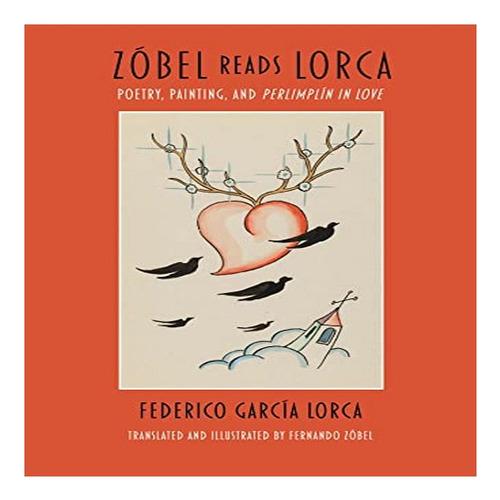Zóbel Reads Lorca Poetry, Painting, And Perlimplín In. Eb8
Pagá en cuotas
Disponible 45 días después de tu compra
MercadoLíder | +500 ventas
MercadoLíder Gold
+500
Ventas concretadas
Brinda buena atención



Descripción
Somos una librería que se dedica a traer libros importados, trabajamos con los principales proveedores internacionales y editoriales, siendo nuestros libros originales y asegurando la calidad del mismo.
Una vez realizada la compra el proveedor envía el libro a nuestro deposito para su despacho, una vez despachado se envían los datos para su seguimiento.
Brindamos garantía sobre nuestros libros y MercadoLibre asegura su dinero hasta que reciba el libro de conformidad.
EL COSTO DE ENVIO ES GRATIS. SE REALIZAN ENVIOS A TODO EL PAIS.
El plazo de entrega del libro hasta su puerta es de 29 días aproximadamente.
Contamos con gran catalogo de libros, si no lo tenemos publicado lo conseguimos.
Cualquier duda o consulta estamos a su disposición.
ESMERALDA BOOKS.
Descripción: A cherished erotic play by Federico García Lorca, illustrated by a major Spanish artist.
Painting, poetry, and music come together in Zóbel Reads Lorca, as Fernando Zóbel, a Harvard student who would become one of Spain’s most famous painters, translates and illustrates Federico García Lorca’s haunting play about the wounds of love.
The premiere of Amor de Don Perlimplín con Belisa en su jardín, an “erotic allelujia” which Lorca once called his most cherished play, was shut down in 1928 by Spanish government censors who confiscated the manuscript and locked it away in the pornography section of a state archive. Lorca rewrote the work in New York, and an amateur theater group brought it to the Spanish stage a few years later. Since his death, the play has also been transformed into ballet and opera.
Zóbel Reads Lorca presents Zóbel’s previously unpublished translation and features contextual essays from several scholars. Art historian Felipe Pereda studies Lorca in the context of Zóbel’s development as a painter, Luis Fernández Cifuentes describes the precarious and much-debated state of the humanities in Zóbel’s Harvard and throughout the United States in the 1940s, and Christopher Maurer delves into musical and visual aspects of the play’s American productions.
Preguntas y respuestas
¿Qué querés saber?
Preguntale al vendedor
Nadie hizo preguntas todavía. ¡Hacé la primera!
